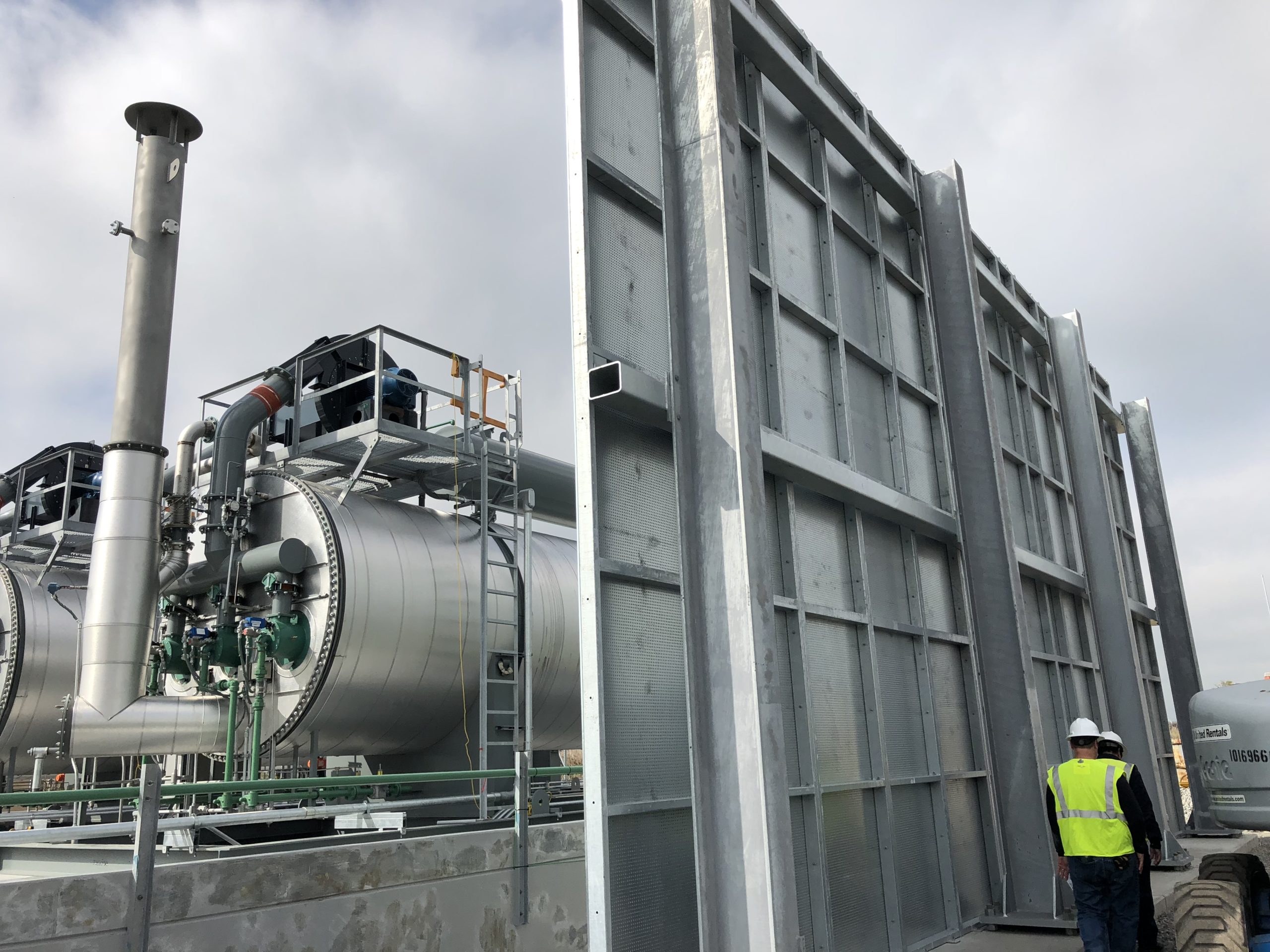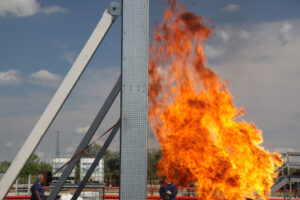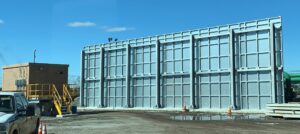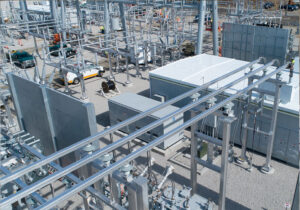Skipping fire and blast protection leaves more than just assets exposed. The risk grows fast and spreads wide, especially in industrial zones. Every minute without physical defense can turn a spark into a disaster. Most companies ignore the invisible costs. But lives, operations, and infrastructure remain at stake. For example, fire barrier construction offers a direct line of defense that shields wires, cables, and critical systems from total failure. These risks don’t wait, and neither should your team. Immediate planning, backed by trusted fire safety structures, gives you the upper hand before damage strikes.
Injury and Fatality Rates Increase Without Barriers
Blast Force Without Resistance Hurts First
When a fire or explosion happens, the force can be deadly. Without barriers to stop it, the blast will hit workers first. Workers in unprotected areas are the most vulnerable. An explosion can send debris flying, causing serious injury or even death. With no barriers in place, the blast travels freely, affecting everything in its path.
Physical barriers slow the blast force. They give people time to react, move away, or find safety. Installing these barriers helps reduce the impact of explosions and saves lives by slowing down the spread of force.
Thermal Spread Traps Workers Fast
Heat moves quickly in an unprotected environment. A fire can spread through walls, floors, and ceilings without barriers, trapping workers in dangerous spots. When barriers are installed, they block the heat from spreading. This helps to keep areas cooler and safer.
Workers can move to safety instead of being surrounded by fire. Without barriers, it only takes seconds for heat to become unbearable, causing burns or worse. Installing fire barriers can stop the spread of heat, giving workers more time to evacuate or shield themselves from the fire’s impact.
Downtime Costs Add Up in Days, Not Months
Equipment Damage Means Delayed Output
When fire or an explosion strikes, it can damage machines and equipment. This damage stops production. Without proper barriers, the equipment takes the full force of the blast. Repairs may take days or weeks, causing long delays. The longer the downtime, the higher the costs.
Without equipment, workers have no tools to complete their tasks. Delayed output means fewer goods made and lower profits. Installing barriers helps reduce damage. It protects equipment from explosions, reducing the need for costly repairs and keeping production on track.
Loss of Power Disrupts Every Operation
Power loss is a common result of explosions or fires. Without barriers, the damage can take out power lines, generators, transformer arrays, and backup systems. Losing power means everything stops. No lights, no machines, and no systems running. This causes massive delays across all operations.
Tasks that depend on electricity, like communications and automated systems, are disrupted. Businesses might be forced to shut down completely until the power is restored. Fire and explosion barriers protect power systems. By keeping them safe, these barriers help prevent power loss and reduce downtime.
Property Damage Leaves Long-Term Impact
Reconstruction Drains Resources Fast
After a fire or explosion, rebuilding property can take time and cost a lot. The expenses for materials, labor, and delays add up quickly. Companies may have to stop operations to focus on repairs, which further delays production. Damage can affect walls, machinery, or entire facilities.
Without fire barriers, the destruction is often much worse. The reconstruction process can drain resources that would otherwise be used for daily operations or growth. Installing fire barriers now can prevent significant damage and save money on future repairs.
Damage to Control Rooms Creates Safety Gaps
Control rooms are key for operations. If fire or explosion damages them, safety systems might fail. Workers rely on these rooms to monitor risks and react quickly. Without a safe space, they may lack the information or control needed to manage emergencies.
Rebuilding control rooms takes time and could leave businesses exposed to even more danger. Installing barriers around control rooms protects them from harm. This protection helps keep operations running smoothly and helps workers stay safe during a fire or blast event.
Insurance Premiums and Claims Skyrocket
Insurers Penalize Weak Safety Protocols
Insurance companies see weak safety measures as a risk. When fire and explosion barriers are not in place, insurers notice. They might increase premiums or even deny coverage. Without barriers, the chances of a serious incident rise. Insurance companies calculate the risk of large claims, and with weak safety measures, they charge more.
Some companies might also be required to pay higher deductibles. This all adds to business expenses. Installing fire barriers reduces the risk and can help keep insurance costs down. It shows insurers that your company is serious about safety.
Unprotected Zones Raise Total Risk Level
Areas without fire barriers are more vulnerable. These zones increase the overall risk of a fire or explosion spreading. Insurers assess all risk factors, including unprotected areas. When a business has weak safety measures, the total risk level goes up. This can lead to higher premiums and more frequent claims.
Installing fire and explosion barriers helps lower the total risk. It also makes your business more attractive to insurers, potentially saving you money on premiums. Protection not only secures your company but also makes a strong statement to insurers about risk management.
Brand and Legal Risks Grow After an Incident
Poor Safety Measures Lead to Legal Battles
When a fire or explosion occurs, the company’s lack of safety measures can lead to lawsuits. If there is no proper protection, people can get injured, and property can get damaged. Those affected may seek legal action. Legal battles take time and money, plus they can hurt the company’s reputation.
Without fire barriers, a business can be held responsible for failing to prevent these disasters. Barriers reduce the risk of incidents and, in turn, the potential for lawsuits. Strong safety practices can protect both the company and its employees from legal consequences.
Reputation Loss Turns Away Stakeholders
A disaster caused by weak safety measures affects more than just finances. It damages the company’s reputation. Customers, investors, and suppliers lose trust in a business that fails to protect its people and assets. This loss of confidence can turn stakeholders away. They might look for other companies that prioritize safety.
Word of incidents spreads fast, and businesses with poor safety records often struggle to regain trust. Installing fire barriers shows stakeholders that you are serious about safety. It builds confidence and keeps your company in good standing with everyone involved.
Prevent Disasters with Sinisi Solutions Protection Systems
Fire and explosion barriers serve as the first line of defense, preventing widespread damage. These simple, proactive measures can save your business more than just money. When disasters strike, costs accumulate rapidly, from worker injuries to expensive downtime. Fire barriers protect your people, property, and operations, lowering the risk of future claims and keeping your business on track.
Failing to take these measures can leave you vulnerable to legal, financial, and reputational harm. Sinisi Solutions provides the protection your company needs. We’re located at 75 Main Street, Manasquan, New Jersey, and available at 732-232-2100. Contact us today to secure your assets and operations before it’s too late.




